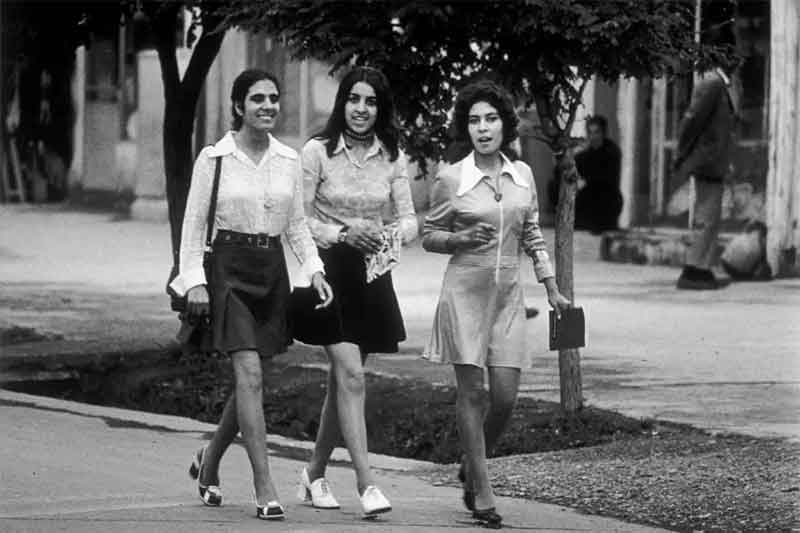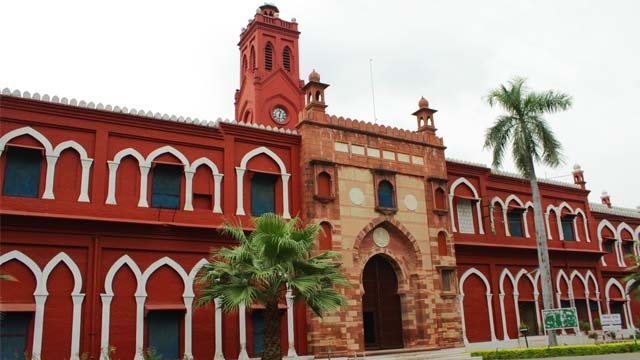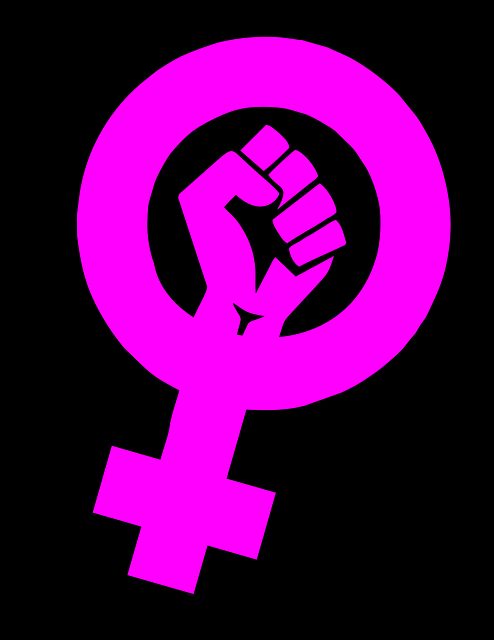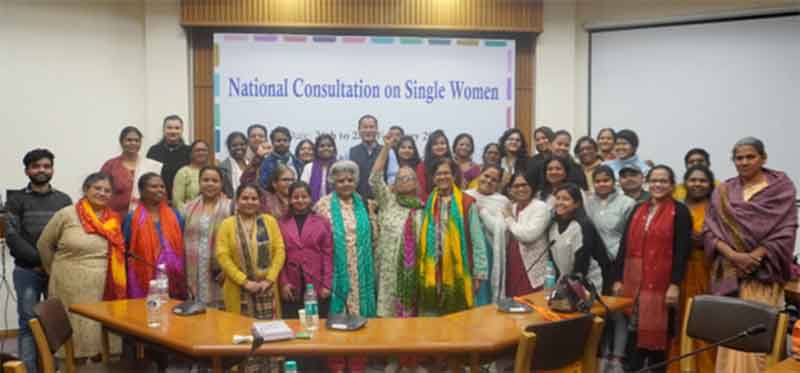
Being female in this world means having been robbed of the potential for human choice by men who love to hate us. One does not make choices in freedom. Instead, one conforms in body type and behavior and values to become an object of male sexual desire, which requires an abandonment of a wide-ranging capacity for choice…
Andrea Dworkin
Aristotle portrayed women as morally, intellectually, and physically inferior to men; saw women as the property of men; claimed that women’s role in society was to reproduce and serve men in the household; and saw male domination of women as natural and virtuous, echoing the deep rooted patriarchy of those times as well as millennia to come. Marx and Engels said that the patriarchal family, private property, and the state arose together. Patriarchy is a system of domination enforced through violence and the threat of violence that is developed and controlled by powerful men, in which women, children, other men, and nature itself are dominated. Patriarchal system has originated in history, which means that it is neither eternal nor inevitable. Some women and some men have resisted patriarchy throughout its history.
Women in India had fought patriarchy since time immemorial. We have had child bride Rukmabai, married in 1876 at the age of 11 to Dadaji Bhikaji, who went to court to get her to come and live with him instead of continuing her studies. The court ruled that she should either go and live with her husband or go to prison – an imperial ruling which found immense favour with the likes of Tilak, otherwise known to be among the staunchest opponents of imperial rule at that time! Consequent to an explosion of feminist wrath led by Pandita Ramabai, Ranade and a handful others, the two parties arrived at a compromise in 1888 and Rukmabai did not have to go to jail. She then went on to study medicine in England and returned to India to become the head of a hospital in Poona. Pandita Ramabai, a champion for emancipation of women and a pioneer in education had to face the wrath of caste Hindus as well as of Vivekananda, who was unhappy with Ramabai for posting a ‘bad image of the Indian nation’ to the Western world and went as far as to attempt to recruit women workers for propaganda against Ramabai who had gone to the US to raise funds for child widows in India.
This deeply entrenched concept that woman is the property of the (male-headed) family and anything she does or says that does not conform to tradition, or any injury that is done to her, will post a ‘bad image of the family’ or, in extension, of her religion, culture, workplace or nation, has always been a powerful excuse for not addressing the violence perpetrated on women by the members of family, of colleagues, of the larger society and of course by the state and its agencies. It is in this context we need to look at the recent episodes of sexual harassment at the Satyajit Ray Film and Television Institute (SRFTI), Kolkata.
Some reactions to sexual violence
It is definitely good news that more and more women are coming out and are speaking of the violence that they face within the family and community, at the work place, in public space and in conflict. The bad news is redress of grievances is just not available, though there exists a legal mechanism for remedy. The gang rape incident that occurred on December 16, 2012 and the unprecedented protest that Delhi witnessed has in no way stopped or reduced the violence on women but has changed the attitude of women – and some men – from shying away from reporting sexual violence, and as a result we see more and more women are reporting abuse and seeking justice. The young student of Hindwara who accused army personnel of 21 Rashtriya Rifles of molestation, was tortured in illegal custody for a month, pressurized to change her statement, but she remained undeterred and narrated the whole story in a press conference after her release, and filed FIRs against molestation, illegal custody and torture. The Handwara incident is one of the many examples of how state power and mainstream media align in defence of what they believe to be ‘national interest’. Her indomitable spirit is worth saluting but the point of concern is that she has to fight for justice, which should naturally have been hers. Likewise, the women of Kunan Poshpora, Kashmir, subjected to gang rape by the army are fighting for justice for the last twenty-five years.
In the case of state-sponsored violence, the state’s unspelt, but by no means ambiguous; defence is ‘national interest’. And in the case of sexual violence at the work place, authorities are generally all out to cover up the incident in the interest of keeping its ‘image clean’, thereby encouraging the violence by stoutly refusing ‘to wash its dirty linen in public’. The strong patriarchal mindset of society and petty interests of the individuals, isolate the victim, and she is further labeled as ‘trouble maker’, a ‘mad woman displaying hyperactive responses’. One can well imagine the pressure on the young Tehelka journalist who accused Tarun Tejpal of raping her, while the Editor attempted to ‘manage’ the crisis. His numerous high profile friends tried to make him the victim and many conspiracy theories were floated because the ‘real’ ‘victim’ refused to be a ‘victim’. Even after three years, the Mid-Day newspaper recently carried a short piece arguing that the so-called “media trial” of Tarun Tejpal, for allegedly raping a junior colleague, had damaged the “liberal” cause, at a time when personal freedoms are under assault in India. The article concluded by hoping that Tejpal would make a “comeback” – presumably in the interests of democracy! It is sad but true that incidents of sexual harassment and violence are often covered up in the name of some elusive ‘greater interest’. Although it is a fact that Tehelka may not be the same without Tarun Tejpal at its helm, it is equally true that a sexual abuser and rapist at the head of Tehelka would have strengthened the very establishment – rooted in patriarchy – that the magazine claims to dare to challenge. Similarly, when we see supposed progressives and radicals within or without the Left movement remaining silent on issues of sexual harassment of women activists, we realize just how unequal the movement striving for equality and justice remains. In the similar light, Nagraj Manjule, director of acclaimed Marathi film “Sairat”, who said in an interview “I am tired of this world created by men, ruined by men. I want a woman now to build the world or mess it up”, himself is an accused of domestic violence to his ex-wife Sunita, cannot be overlooked for their transgressions in favour of their creative genius.
Continuum of harassment at SRFTI
The Satyajit Ray Film and Television Institute (SRFTI), named after acclaimed film director Satyajit Ray, was established in Kolkata in 1995. An autonomous body governs the institute with a Governing Council, Standing Finance Committee and Academic Council. The institute is under the Ministry of Information and Broadcasting of the Government of India. The Government of India has accorded it the status of an Institute of National Importance. SRFTI is the premier institute in India for film training, at a par with the Film and Television Institute of India (FTII) for its quality of education and reputation in the Indian film industry. It is also a member of CILECT (International Liaison Centre of Schools of Cinema and Television), an organization of the world’s leading schools of film and television. In 2014, the government proposed to give ‘Centre of National Excellence’ status to SRFTI. The institute offers six diploma courses in direction and screenplay writing, sound recording, editing, cinematography, production and animation cinema.
Veterans say that sexual harassment on campus was prevalent all along, but was acknowledged as a problem by the SRFTI administration only in November last year, when the then director of the Institute called a meeting based on complaints accumulated against the faculty and fellow students. A meeting of only women students (nearly thirty) was called where all of them were vocal about the widespread nature of the problem and six students filed complaints with the ICC, (Internal Complaint Committee), including one of rape, against three professors and four students. An out-going student says, “It was bound to happen. It could have happened three years earlier or two years later.” A senior student says that when she joined SRFTI in 2011, “Senior students helped juniors with what to read, which films to watch, how to go about the integrated course and, most significantly, on how to avoid a particular professor, who had a history of harassing girl students and was not allowed on the hostel premises.”
The attitude of the administration, though compelled to revive the Internal Complaint Committee (ICC) and refer the complaints to the revived ICC and suspend the accused faculty, remained hostile towards the complainants. Instead of sensitizing the student community on sexual harassment, it went the other way. Trivializing the matter, the then Dean kept going to different student groups and said things like ‘if these modern laws of sexual harassment were applied even I would go to jail’. This Dean later took ‘voluntary retirement’ after a retired judge was requested to initiate an inquiry. But the damage had been done. Encouraged by the tacit support of the authorities in the matter of sexual harassment and abuse, some male students went to the extent of abusing and intimidating the complainants.
When a ban on public drinking was imposed by SRFTI administration, these students claimed that the female students who had complained of sexual harassment were responsible for this ban, and demanding the ban be lifted, created a ruckus in front of the girls’ hostel early in the morning, all the while abusing the girl students in filthy language. Though the ban on drinking has not been officially lifted, drinking continues. The complainants are considered as ‘troublemakers’; labeled ‘mad women’ and the ones who are tarnishing the reputation of a premier institute like SRFTI. The teachers who were later suspended wielded tremendous influence, mostly by unfair means. Students who towed their line were favored, helped in their projects, their short films were sent for competitions, some provided jobs in the industry and the rest showered with promises. Having no Placement Cell at SRFTI, made students unduly dependent on the favour and recommendations of these teachers at the end of the course.
As if this were not all, the disgraced faculty regularly sponsored booze, weed, and drugs addas for their favourite students. Every year at least one student leaves SRFTI, without completing the course, because of drug problems. Students remember a female student, who was very bright, but had to leave the course midway because she had taken to drugs. There is no counseling. Course work, which takes up a major part of their campus life along with drinking and drugs, disorient them and for many this pressure is unbearable. One of the suspended faculty members was particularly notorious for holding regular drinking and weed smoking sessions in the hostel. In one of the videos that are in circulation, he can be seen talking to students in extremely vulgar, sexist and racist language, not to speak of the accompanying gesticulations. He is said to have made a habit of laying bets on the female students.
On the other hand, the complainants, especially the one who complained of rape, was highly unpopular amongst the students – as a result of not a little instigation by the authorities – as she was consistently complaining about ragging and was actively confronting the abusers. The authorities did nothing to keep the identity of the complainants secret. Once the identities were known, the focus shifted from the problem, i.e., of sexual harassment, to ugly blame game.
Inevitably, the authorities deemed sexual harassment to be excusable, but making public the unforgivable dalliances of its faculty members absolutely unacceptable. As a result of this patriarchal attitude, which regards women as expendable but sexual abuse by men as a matter of course, complaints and counter complaints of intimidations, floods of rumours, speculative and manipulative narratives spread throughout the campus. Authorities did nothing to diffuse the tension, but rather stimulated a clear divide amongst the students, isolating the complainants. In the meantime one of the complainants – presumably unable to cope with the pressure that had encircled her from all sides – switched from the ‘complainants’ side’ to the ‘anti-complainant side’, boosting the morale of the perpetrators and their defenders. It is said that if the authorities had taken proper steps three more would have been suspended.
Isolation of SRFTI from other academic institutions of Kolkata, uniqueness of the courses, the small number of students and lobbying by the alleged perpetrators further isolated the complainants. The Students’ Union was dissolved overnight, the President sympathetic to the cause of the complainants removed, and a new association was formed which actively lobbied against the complainants to the extent that one of the complainants and her friend were harassed in the night while they were strolling in the campus, just after a day of the formation of the new Students’ Association. The old Students’ Union was summarily dissolved on flimsy grounds at a small students’ meeting in which most of the students were drunk, and a new association nominated itself and included many of the accused students. A member of the shooting team, who was sympathetic to the complainants, was threatened of sexual harassment. A producer has withdrawn from a documentary shoot leaving the other students involved in the project in the lurch.
All this is happening because the authorities, though acknowledging that students including complainants and their witnesses are being intimidated, have refrained from taking disciplinary action and are thereby indulging the group that is actually promoting sexual harassment on campus by their flagrantly sexist behavior including victim-blaming and victim-shaming. They are becoming more violent, abusive, powerful and dominating. Instead of engaging the entire student body and taking measures to address the problem, the chairperson is shamelessly engaging only with this group and humiliating the complainants. A complaint in this regard is lying with the ministry. Even, in a recent Governing Council meeting, this group was given appointment, whereas the two complainants had to push their way through. The administration is delaying action over the ICC report, in which two professors have been held guilty and tough measures recommended.
According to some, another major issue is public knowledge of the CAG report of 2011–12, pointing out arbitrary payments without following government rules. In March this year an order was issued to actualize the irregular payments of seven officials including the administrative officer and the secretaries to the director and chairperson. It is said that the accused faculty is privy to the information and that they might use it if authorities take action on the ICC recommendations. Chairperson Partha Ghosh himself asked the director to put the order of actualization of excess payments on hold. The actualization order, though kept on hold, was referred to the ministry. Moreover, there is a detailed report by the registrar, which says that SRFTI allots multiple times the fund that FTII gives to its students for diploma films and also about three irregular promotions and appointments. This is said to be the reason why the director Debanjan Chakrabarti and registrar Anindya Acharya were requested to ‘voluntarily’ step down in the first week of June this year. It is also said that Chakrabarti intended to complicate things by wanting to take a quick action on the ICC report.
In an institution like SRFTI where the all-powerful head of the institute thinks that addressing the problem of sexual harassment will bring a bad name to the institute and prefers not to set a precedent of being gender just, this is bound to happen. In institutions that were once exclusively masculine, fight against sexism is inevitable. In organizations like SRFTI the behavior of men must change. But for men then all ‘fun’ would be lost. Women are expected to tolerate what has been described as “casual sexism”. This writer remembers an incident where a women scientist in a CSIR laboratory, who had complained about sexist remarks by a colleague, was isolated and how the ICC was manipulated. The woman scientist struggled for years for justice that remained elusive till she got tired and stopped pursuing the matter. The Director of the laboratory openly declared that if it were in his hands, he would have kicked her out. Anxious about their own careers, other colleagues stopped talking to her, and she was labeled as ‘trouble maker’, ‘arrogant’ and ‘intolerant’.
And in the end
The typically feudal, patriarchal, regressive mind-set that considers that issues concerning women are to be swept under the carpet, and the institutions that nurse and promote this mind-set, need a severe shaking-up. The fact that many women do not speak out is partly out of fear of damaging their careers or losing jobs and they continue working in an environment where they do not feel comfortable. Institutes like TISS and JNU take pride in making the campus liberal and gender-just by addressing the highest number of sexual harassment complaints. However, it is a sad fact that not many of these relatively liberal institutes, both in Kolkata as well as in other cities, have not come out in open and vocal support of the SRFTI students.
What is further shocking is the complete silence of men, who claim to be liberal, and progressive but fail to provide a supportive environment or remain complicit in silence. Without their support it is left to women to either organize against it or adapt to it. Women who refuse to participate in this culture of silence or decide to complain pay a heavy price. It is sad that even in the 21st century women have to continue to fight for their right to be treated as humans with dignity and respect. But this change is difficult without the active participation of men. It needs conscious effort by men to make themselves better human beings, who are not feared but respected, who do not flout their ‘masculinity’ by humiliating women but speak out against such behaviour.
And some good news
By the time this writing was nearing completion, finally SRFTI had taken action on the ICC report, and two faculty members were given ‘compulsory retirement’. The ICC has also submitted its report on allegations of sexual harassment by students, and according to the report all the four students were found guilty but one complaint of rape could not be proved due to lack of evidence (?). It was the indomitable spirit of the young girls, who against all hostility of fellow students and the administration, fought for their rights and justice, which needs to be saluted. The incident, their resistance to harassment and bringing it to its logical conclusion will surely encourage other women to speak out instead of suffering silently and fitting into the role set by patriarchy.
In a world where sexism is rampant, it is heartening to see seventeen former women ministers, including the present IMF chief Christine Lagarde of France launching an attack on sexism. Their collective voice, despite their political differences, has been published in an op-ed in a French weekly Journal Du Dimance, of 15th May 2016, agreeing on: sexism simply has no place in society and giving a call “Impunity is finished” and that “We will not be silent”. Their call is to “End the double sentence”, where women who report sexual harassment are de facto made to lose their job, is a refreshing move and a move towards uprooting patriarchy. Thus if I may be allowed to change the tense,
It is the best of times, it is the worst of times, it is the age of wisdom, it is the age of foolishness, it is the epoch of belief, it is the epoch of incredulity, it is the season of Light, it is the season of Darkness, it is the spring of hope, it is the winter of despair, we have everything before us, we have nothing before us, we are all going direct to Heaven, we are all going direct the other way…
Nisha Biswas is an activist based in Kolkata
















































